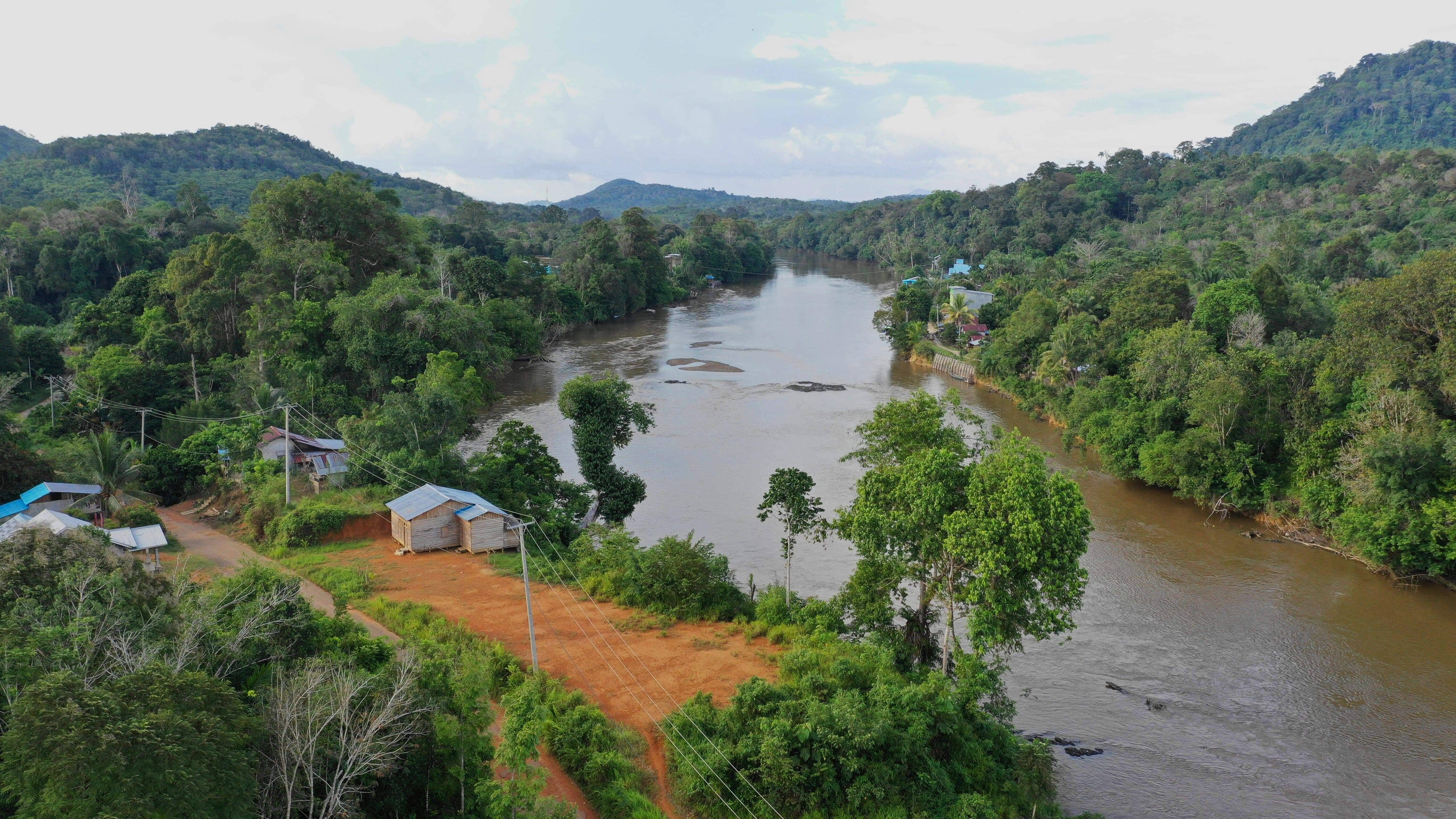Delta Pawan forms part of the Pawan Watershed Landscape, located in Ketapang Regency, West Kalimantan Province. Ketapang is the second-largest regency in the province, with a total area of 31,588 km². Situated in the southern part of West Kalimantan and directly bordering Central Kalimantan Province, the region is well known for its rich natural resources, particularly in the sectors of plantations, forestry, and mining.
Ketapang holds approximately 1.7 million hectares of forested areas, distributed across both gazetted forest zones and non-forest zones. These forests encompass a variety of ecosystems, including lowland dryland forests, peat swamp forests, and heath forests (kerangas). Collectively, they provide critical habitat for protected species such as the Bornean orangutan (Pongo pygmaeus), Sunda pangolin (Manis javanica), and sun bear (Helarctos malayanus).
Economically, the livelihoods of Ketapang’s communities are diverse. The majority are employed in agriculture, forestry, and fisheries (26.10%), followed by mining (17.03%) and manufacturing industries (15.52%), with the remainder engaged in trade, construction, and services. The backbone of the local economy lies in key commodities such as oil palm, rubber, and timber.
According to Earthqualizer’s analysis, Ketapang hosts at least 597,000 hectares of planted oil palm. Of this, more than 400,000 hectares are managed by over 78 oil palm plantation companies grouped under 24 corporate groups, while the remaining area is cultivated by independent smallholders (ISHs). This dual structure of corporate and smallholder oil palm production underlines the importance of inclusive governance to ensure equitable and sustainable development in the sector.
From a governance perspective, Ketapang operates within a multi-level regulatory framework. Oversight and management of land use fall under the shared responsibilities of the Ketapang Regency Government, the Provincial Government of West Kalimantan, and the Ministry of Environment and Forestry at the national level. Balancing the interests of large-scale concession holders, independent smallholders, and local communities with conservation imperatives remains a central governance challenge.
Strengthening land-use governance in Ketapang requires cross-sector collaboration—aligning economic development with environmental stewardship—to safeguard biodiversity, reduce deforestation, and ensure that the regency’s vast natural resources contribute to long-term ecological resilience and community prosperity.
